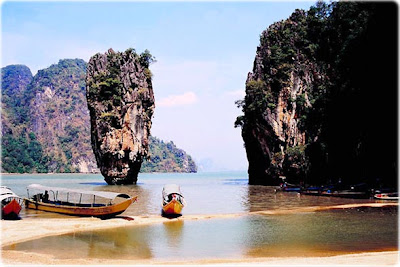
The bellboy yawned as he stood sentry at the five-star hotel's doors. The hostess checked her long red nails and looked longingly at the empty driveway.
It was another quiet day at the luxury Mandarin Oriental Bangkok, thanks in part to the noisy political protests across town.
Tourism has been hit hard by Thailand's political crisis, which has seen the prime minister removed from office, a state of emergency imposed and lifted, key airports shut down by demonstrators and tenacious anti-government protesters occupying the grounds of the prime minister's office for three weeks.
Parliament's scheduled selection of a new prime minister Wednesday seems unlikely to put an end to tensions, as the protest alliance has already rejected the choice of Somchai Wongsawat, who currently holds the job in a caretaker capacity.Many fear a prolonged crisis could further weaken the tourism sector, which brought in roughly $16 billion in revenue last year, about 6.5 percent of Thailand's gross domestic product.
Governments overseas have issued warnings about traveling to Thailand. Hotel occupancy has fallen by 40 percent, according to the Thai Hotels Association. International arrivals are down 30 percent from this time last year, said the Association of Thai Travel Agents.
Thai Airways is flying with 20 percent fewer passengers than the same period last year, company officials said. The Mandarin Oriental Bangkok, the city's most famous hotel, has vacancy rates around 50 percent, the manager told reporters.